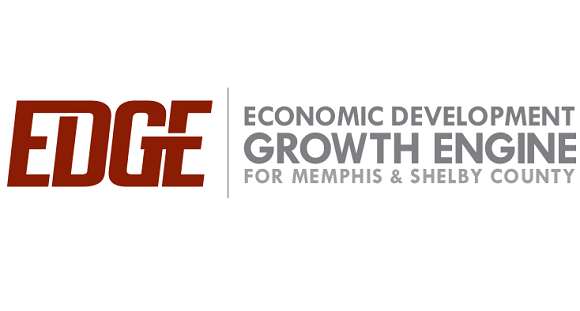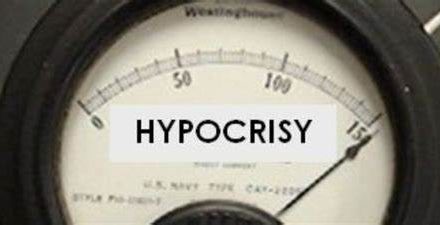Thumbnail: There’s no argument that EDGE’s PILOT program deserves serious evaluation by Memphis City Council and Shelby County Board of Commissioners. There’s also no argument that EDGE is the only local agency granting PILOTs that is transparent. Finally, there’s no argument that every PILOT-granting agency should be part of the legislative review and reform, starting with transparency or accountability.
***
I come today to praise EDGE.
I hope the shock isn’t too much for you.
I’ve blogged for 15 years about my concerns about the PILOT program developed, directed, and executed by EDGE (Memphis/Shelby County Economic Development Growth Engine), but they deserve kudos for achieving something no other PILOT-approving agency in our community has – transparency.
Transparency is one of those words regularly dropped into civic and political discussions on a variety of issues and is often paired with the word, accountability. Often, it’s just lip service.
However, EDGE is more forthcoming about its PILOTs than any of the other nine agencies that also have the power to shift the tax burden from companies and developers to the rest of us.
Context
It’s a curious feature of local discussions about economic development. All the agencies granting them – and the politicians enjoying the ribbon-cuttings – argue that the tax breaks are absolutely a necessity and that any efforts to reform them is a slippery slope that would sink our economy.
Meanwhile, no one in government bothers to compare our economy’s actual performance to comparable cities and counties. That’s despite the fact that in the past 20 years, our agencies have given more PILOTs than Tennessee’s other urban counties combined times three, all while on almost every economic indicator that matters, Memphis and Shelby County’s economy is failing to keep up with cities and counties it once outpaced.
But that’s just context. It’s no secret that our economy is based on exploiting low-wage workers and that we’re falling behind because we remain at the bottom of the 50 largest regions in our percentage of college-educated workers, and more college-educated workers begets more jobs paying a living wage.
So, who exactly can we depend on to tell us the truth?
You’d hope it would be the Greater Memphis Chamber but it seems to issue a new report and study every time it makes sense to hold them accountable for the last one’s recommendations. City of Memphis and Shelby County governments have set no performance standards for agencies granting tax breaks, so it’s no surprise that they don’t know if agencies are succeeding in their core job of creating an economy that increases average incomes, reduces poverty, and provides workers with more living wage jobs.
If You’re So Proud…
But I digress. Back to EDGE.
At a time when politicians, Chamber officials, and downtown advocates tell us how important tax freezes are, EDGE is the only one willing to put out its information for the public to see, including all the details of each PILOT.
It’s a strange phenomenon. If all of these people think PILOTs are so essential, why are so many of the agencies hiding the data? Why don’t they put all of their information online where the taxpayers they supposedly serve can see them?
EDGE accounts for just over half of the $46 million waived in county taxes for its 235 PILOT contracts in 2019, the year for which the Shelby County Trustee has last released a yearly report. The office does not calculate the amount of Memphis taxes being waived; it only reports on county taxes.
10 Agencies Give Tax Breaks
So, while EDGE makes PILOT applications, analyses, term sheets, resolutions, average payroll, capital investment, taxes abated, MWBE/LOSB spending, length of the PILOTs, and incentives received, these other agencies remain largely silent and certainly don’t post this kind of public information online, particularly the amount of waived taxes and the number of PILOT contracts.
The following list are the PILOT-waiving agencies and the amount of taxes waived and number of PILOT contracts are in parentheses:
Center City Revenue Finance Corporation, Downtown Memphis Commission ($11.6 million, 121 PILOTs)
Memphis Health, Educational and Housing Facility Board $4.1 million, 66 PILOTs)
Shelby County Health, Educational and Housing Facility Board ($1.1 million)
Millington Health, Educational and Housing Facility Board ($10,288, 0 PILOTs)
Industrial Development Board of Millington ($86,084, 1 PILOT)
Industrial Development Board of Germantown ($384,228, 4 PILOTs)
Industrial Development Board of Collierville ($1.7 million, 11 PILOTs)
Industrial Development Board of Bartlett ($549,668, 10 PILOTs)
Industrial Development Board of Arlington ($432,990, 0 PILOT)
Next to EDGE, the Center City Revenue Finance Corporation has granted the most PILOTs – 121. If agencies were given a grade for transparency, it would be a D on its best day. It manages to list some information deep inside the website but seems to avoid telling what the amount of the tax breaks are.
Anti-Transparency
If EDGE sets the standard, the antithesis is one hiding in the shadows – the Memphis Health, Education and Housing Facility Board (MHEHF). Its website is sparse and its version of transparency is to post each meeting’s minutes which seem to go out of their way to include any terms and amounts of its tax breaks. If grades were given out, this one definitely gets an F.
When Mayor Jim Strickland took office, the board of the agency had members who were more experienced in addressing Memphis’ gap in affordable housing from a community vantagepoint, but today, the board is composed largely of lawyers, lenders, and real estate investors and financers.
That’s not to suggest that any of the agencies granting PILOTs have community leaders, but this agency has dramatically changed under the Strickland Administration.
Like all tax-forgiving agencies, it has little oversight from City Hall.
You know it’s going to be difficult to get information you when the first impulse is to say that you have to file a FOIA (Freedom of Information Act) request. A second warning sign is when a lawyer is copied on the email directing the filing.
That’s what happened when I asked for MHEHF information. I filed the FOIA request September 1, 2020. My request was for a list of current PILOT projects – name, address, date of approval, amount of PILOT, and term of PILOT.
I requested the information as I wrote an article for MLK50.com about EDGE’s new program subsidizing apartments in Midtown and East Memphis. In an interview, EDGE President/CEO Reid Dulberger had mentioned that EDGE sometimes refers PILOT applicants to MHEHF.
Still Waiting
On October 2, 2020, I checked back on the FOIA request. I received a list of active properties but it lacked the amount of the PILOTs and their terms. On October 8, I received an email from the agency’s lawyer who wrote that it “does not track information the same as other PILOT issuing entities” and he would facilitate my receiving the information.
On November 30, I checked back and on December 2, the agency’s lawyer assured me that he was not ignoring my request, adding that “the board does not maintain records that specifically respond to your inquiry and it is taking a minute to determine how best to respond. The Board has a small staff and working remotely has slowed matters down significantly. We will respond shortly.”
Now, three and a half months later, I’ve heard nothing else and no information has been submitted. Meanwhile, some of its apartment developments have some of Memphis’ worst rates of eviction.
This is another way I have found EDGE to be different. Despite my criticisms of its process, its priorities, and the number and amount of the PILOTs, emails to EDGE have always generated a response and requests for interviews were fulfilled.
Review and Reform
In other words, more than any of the other agencies granting tax breaks, EDGE seems to recognize that it’s always better to face criticisms than complicate and deter access to public records. It was ranked in the Top 10 for incentive transparency from Good Jobs First, a national organization that tracks incentives.
Downtown Memphis Commission was called one of the worst. City of Memphis belongs on the list as well because it does not provide taxpayers with the amount of city tax dollars being lost each year in PILOTs.
Because the Commission does not post details about its PILOTs, anyone determining the definitive information about the amount of the PILOT and its term must rely on the regular reports by Shelby County Trustee Regina Morrison Newman
None of this is said to discourage plans by Memphis City Council and Shelby County Board of Commissioners to consider ways to reform the PILOT program. It is long overdue, and hopefully, it won’t be like the previous ones that ended up being sound and fury signifying nothing.
There’s no secret about my concerns about the PILOT program. I’ve been writing about them for many years, and my suggestions for injecting more accountability into PILOT programs were published recently as an op-ed in The Commercial Appeal.
As legislative bodies discuss changes to economic development, they often only talk about EDGE; however, any discussion of tax breaks should include every agency that can shift taxes from companies and developers to the general public. For Shelby County, that also includes the PILOT programs of the municipalities because every time they waive their own taxes, they waive county taxes at the same time.
There’s much that needs to be done with the PILOT programs in our community, and at their center should be transparency and accountable. Here’s hoping that they form the core of our legislative bodies’ review and reform.
***
Join us at the Smart City Memphis Facebook page for daily articles, reports, and commentaries relevant to Memphis.




